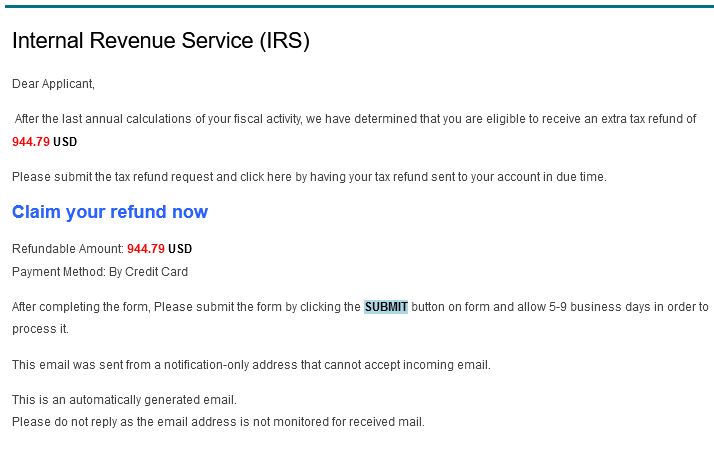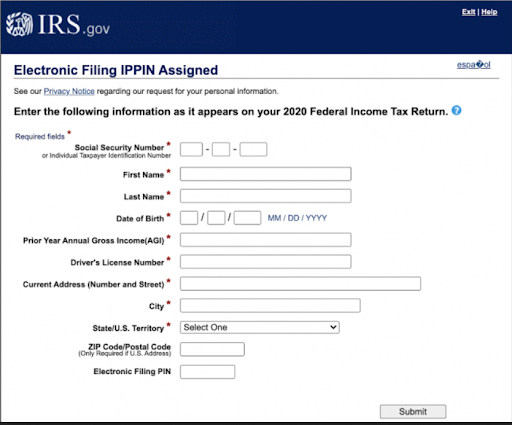
The Federal Trade Commission (FTC) recently released a warning to all university students, faculty and staff to be on the lookout for phishing emails claiming to be from the IRS. The scammers claim they have “information about your tax refund payment” and urge you to click on their phishing link. Subjects may include “Recalculation of your tax refund payment” or “Tax Refund Payment,” or similar messaging about tax refunds.
Once on the site, they will ask for your personal information, such as name, Social Security Number (SSN), date of birth and other personal information. They can then sell that information or use it for identity theft (including filing taxes under your name to steal your tax refund).
However, the IRS will never contact you first by email. If they need to contact you, a mailed letter will be the first form of outreach. If you need to confirm the IRS contacted you, call 800.829.1040.

The Information Security Office is taking steps to filter and remove the phishing emails before they come to your mailbox. However, if you see any phishing emails in your Case Western Reserve University or personal email inboxes, the FTC recommends the following actions:
- If you clicked a link in one of these emails and shared personal information, file a report at IdentityTheft.gov to receive a customized recovery plan based on what information you shared.
- If you spotted this scam, the IRS is asking you to forward the email as an attachment to phishing@irs.gov. It is requested they also be sent to ReportFraud.ftc.gov.
For any security questions, please email the Information Security Office at security@case.edu. If you see any phishing emails, report them as phishing.
Sources:
- https://www.consumer.ftc.gov/blog/2021/04/new-irs-imposter-scam-targets-college-students-and-staff
- https://www.bleepingcomputer.com/news/security/scammers-target-universities-in-ongoing-irs-phishing-attacks/
By: Katherine Starr, information security analyst

